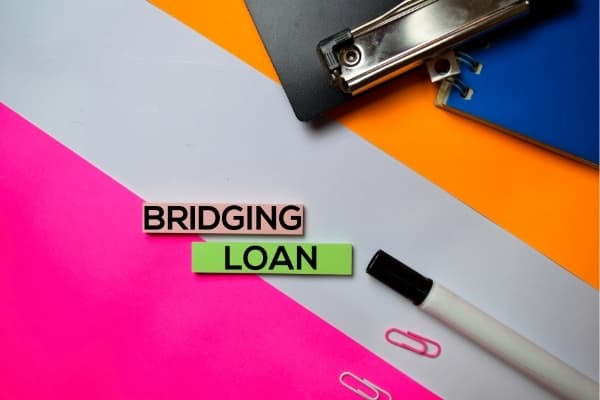Refinance Home Loan: When It Makes Sense
After acquiring any type of loan, a borrower will rethink their existing loan, whether it is possible to make it more convenient or not.
Questions such as ‘is it possible to lower the interest rates’ or ‘can I have lower monthly installments’ will be thought of. Refinancing can answer these questions by providing ways to modify existing home loan terms such as interest rates and repayment plans.
This article will help you understand refinancing better; as well as finding the best bank and rate for loans.
What Is Refinancing?
Refinancing, or ‘refi’, refers to the process involving modification of the terms and conditions of an existing home loan credit agreement, such as a home loan agreement or a home loan package.
To refinance home loan credit accountability means seeking favorable changes on the interest rate, payment schedule, and other terms indicated in the contract.
This involves a re-evaluation of the borrower’s credit and repayment status. After refinancing, the borrower gets a fresh contract in place of the original agreement.
However, there are intricacies to refinancing that borrowers should be able to understand to help their finances.
How Does it Work
There are several motivations behind refinancing applications.
To Decrease The Indicated Interest Rate
The interest-rate environment changes per cycle, which means that borrowers refinance when interest rates are lowered. A decrease in interest through refinance effectively reduces payments for the remaining home loan tenure.
To Adapt To Changes In Economic Conditions
Based on existing economic situations affecting their personal financial situation, borrowers seek ways to adapt to their situation, especially when they encounter difficult financial situations.
An example would be changing fixed-rate interests of a home loan to a floating rate.
It can also be invoked due to changes in the borrower’s long term financial plans or improvement of credit profile.
For Debt Consolidation
It can clear existing loans by consolidating them in one low-priced loan, to help with acquiring more savings.
To initiate a refinance request, the borrower must inquire with their existing lender/a new lender and complete a new home loan application.
Businesses may also request to refinance mortgage rates on commercial properties. They usually check their corporate balance sheets for business loans issued by creditors that could benefit from lower market rates or an improved credit profile.
The Several Types of Refinance Options:
- Rate-and-term refinancing: This is the most common type of refinancing. This occurs when the original home loan is paid and replaced with a new home loan agreement that requires lower interest payments.
- Cash-out refinancing: Cash-outs occur when the collateral asset has increased in value. The refinance transaction involves withdrawing the value or equity in the asset through a higher loan amount, often with a higher interest rate.
This option increases the total loan amount but gives the borrower immediate access to cash while still maintaining ownership of the asset.
- Cash-in refinancing: Cash-in refinancing allows the repayment of some loan portions for a lower loan-to-value (LTV) ratio or smaller loan payments.
- Consolidation refinancing: A consolidation refinancing is used when an investor acquires a loan at a rate that is lower than their current average interest rate across several credit products. Consolidation refinance requires the customer to apply for a new loan at a lower rate and then repay all current loan/debts with the new loan, having a total outstanding principal with lower interest rate payments.
Benefits and Risks of Refinancing
These are the important things in pros and cons.
Pros
- Get a lower monthly mortgage payment and interest rate.
- Convert an adjustable interest rate to a fixed interest rate, which helps in having a sense of predictability and possible savings.
- Acquire an influx of cash for a given financial needs.
- Set a shorter home loan tenure, which cuts costs on total interest paid on repayments and is a huge help on savings.
Cons
- If your home loan tenure is reset to its initial length, your total interest payment that is already paid may be more than what you can save at the lower rate.
- If interest rates drop, you won’t get the benefits unless you refinance again, which also entails additional fees (ex. legal fees, valuation fee, etc.).
- You may reduce the equity you hold in your home.
- Your monthly payment increases with a shorter loan term, and you have to pay closing costs on the refinance.
When Should You Refinance?
There are several reasons behind a refinance of home loan packages.
Lock-in Period Will End Soon
Lock-in period refers to a period that loans have lock-in status which restricts prepayment.
Applying for refinance during the lock-in period will incur a penalty fee.
Take note of the 3-month notice requirement before switching, and begin the refinance process at least 4 months before the new interest rate cycle applies.
Loan Tenure Extension
This only applies if the existing tenure is less than the maximum loan tenure. Whether in the case of HDB or private property, you can extend your loan tenure for a maximum of 35 years or until you reach the age of 75.
The period starting from your current loan’s first disbursement up until the application will be subtracted from the maximum loan tenure extension.
Better Interest Rates
Different loan types have different types of rates, such as fixed-rate and floating rate. Converting from a fixed-rate loan to a floating rate, or vice versa, for a housing loan has its own benefits.
Lower Monthly Installments
When refinancing your home loan package, you should strive for a lower interest rate which produces lower monthly repayments because it is likely that the next repayment cycle will introduce higher interest rates.
So it is advisable to take advantage of the refinance window, which is 4 months before your existing home loan rates renew, to avoid higher installments and to help increase your savings.
Unlock Equity Through Cash-out Refinance
Exclusive to private properties, homebuyers in Singapore can use their private property as collateral to apply for an equity loan.
Usually, the cash-out limit is 60–75% of the property value, minus the remaining outstanding loan and CPF used for the same property.
It is advisable to avoid taking the maximum cash-out allowed and to prepare for changes in property valuation fees.
Refinancing vs Repricing
In simple terms, repricing is switching your loan within the same bank, while refinancing loan is switching your loan for another loan at another bank/different bank.
While this appears to just be a matter of preference in the borrower’s choice of banks, there are several reasons for it.
One reason why people opt for repricing is that some banks include an offer of a one-time repricing within their packages, so you can move between the bank’s current loan package to another one without additional costs. Aside from this, the other differences are their costs and the process involved in loan switching.
While several banks have existing repricing promos, repricing commonly goes between $800 and $1000. It is also common that the package offered by the bank will usually be worse or same level as their offer for new customers.
In the case of refinance, banks usually offer subsidies with low switching costs and enticing interest rate packages to attract new customers from another bank. If you are eligible for the subsidies, it can be convenient to apply for their scheme.
What Are the Ideal Rates for Home Loan Refinancing?
Here are some of the existing ideal rates for home loan interest rate in Singapore, with their corresponding board rate.
HDB Loan Refinancing
Note: Converting an HDB loan package to a bank loan package will mean that you cannot refinance with HDB anymore after opting out.
| Bank | YEAR 1 RATE |
| Maybank 3 months SIBOR | 1.29% |
| SC Bank 3 months SIBOR (2) | 1.29% |
| HSBC 1-month SIBOR (1) | 1.30% |
| UOB 2 years Fixed Deposit Rate/Flex | 1.40% |
| SC Bank 2 years Fixed Rate (2) | 1.45% |
| UOB 2yrs Fixed | 1.50% |
Private Property Refinancing
| PRODUCT | YEAR 1 RATE |
| Maybank 3-month SIBOR | 1.29% |
| SC Bank 3-month SIBOR (2) | 1.29% |
| HSBC 1-month SIBOR (1) | 1.30% |
| CIMB 2yrs Fixed Rate (Preferred) | 1.30% |
| CIMB 2yrs Fixed Rate | 1.38% |
| UOB 2yrs Fixed/Flex loan rates | 1.40% |
Jumbo-Size Home Loan Refinancing
| Bank | Monthly Installment | 1 Year Interest | Lock-In |
| HSBC Bank Tracker | S$7,766 | 1.25% | 2 years |
| SCB Bank Tracker | S$7,772 | 1.26% | 2 years |
| HSBC Bank Tracker | S$7,812 | 1.30% | 2 years |
How to Choose the Best Home Loan Refinancing
To choose the best home loan package, you may check MoneylenderReview.com, a reputable site akin to mortgage specialists dedicated to offering reliable customer support, reviews, and feedback on the best licensed money lenders in Singapore while offering unbiased comparisons of existing best interest rates and best services in the market.
They aim to protect their customers from financial traps and assist them with making the most informed decisions using the information that they provide on the site.
MoneylenderReview.com provides an updated list of Singapore’s best money lenders with the newest and current lowest interest home loans, which include genuine feedback and reviews from the actual borrowers themselves. If you wish to shop for options and find the best and the most convenient refinancing option for your needs, same with inquiring with a mortgage specialist, you can receive free quotes from https://www.moneylenderreview.com/.
Is it Worth Refinancing Your House Right Now?
The final question when it comes to refinancing is whether it is worth your time and effort to refinance your house or other properties right now.
Ultimately, this will involve calculating all relevant market rates which change per cycle; therefore, it pays off to be well-informed and updated on current trends in home loan rate found within banks in Singapore.
If you have several existing loans, refinancing can be used for debt consolidation as well, to make your payments much easier to deal with.
If you decide to apply for refinancing home loans, take note that each consecutive refinancing application will incur fees, such as legal fees and valuation fees. If you wish to refinance, you should get the details of the terms right on the first try.




